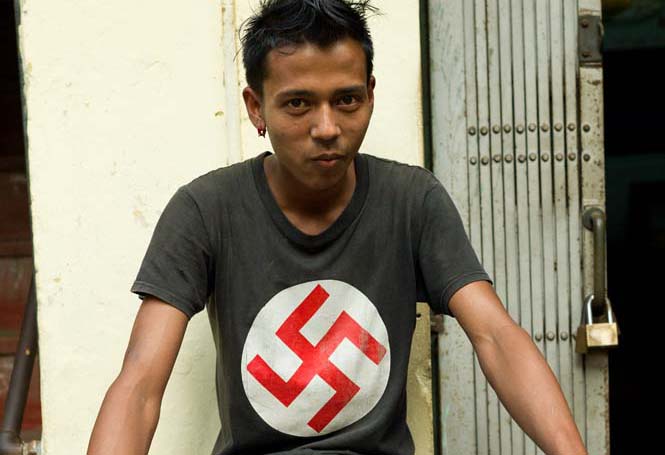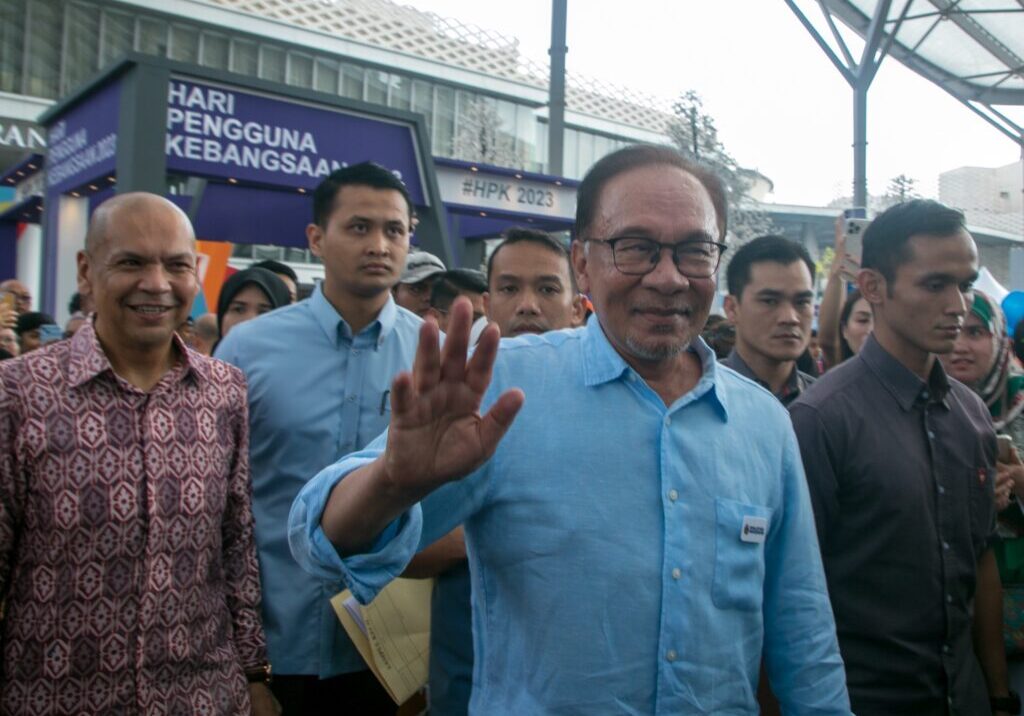Australia/Israel Review
Asia Watch: Sporting colours
Jan 23, 2013 | Michael Shannon

Sporting colours
Emerging from nearly two decades of military rule, Myanmar has been a largely closed country known mainly for its iconic figure of democratic resistance Aung San Su Kyyi. Recent visitors have been surprised to find that amidst the transition to democracy, one may encounter young men sporting large swastikas and other Nazi symbols on t-shirts and World War II-style motorcycle helmets on the streets of Yangon.
An Asia Times correspondent has reported that Myanmar’s most popular rock band is named “The Iron Cross,” and that the band’s logo is a Nazi eagle holding an iron cross instead of a swastika in its claws.
Some dismiss the phenomenon as one borne out of ignorance rather than ideology and that the attraction of such symbols is their striking, even shocking, nature rather than any deep identification with their history.
Nonetheless, the street-level Nazi chic has reportedly caught the attention of Rabbi Abraham Cooper, a member of the California-based Simon Wiesenthal Centre. “Our first assumption is that it’s based on a lack of knowledge, not on any insidious hatred,” he told the Asia Times. “But we don’t want to see the symbols of the genocide that was perpetuated against the Jewish people become fads anywhere in the world.”
The appropriation of such symbols has occurred elsewhere in Asia, including Thailand, Japan and South Korea, largely in commercial or pop culture contexts. But it seems Hitler, in particular, resonates for some Asians as an iconic strong leader who fought against colonial powers, including England and France, which ruled and dominated their nations before achieving independence.
Meanwhile, Rabbi Cooper is considering organising the first ever Holocaust exhibition in Myanmar and also plans to look into the origin of the Nazi t-shirts. “If it’s a company that makes its living by exporting (these shirts) overseas, this kind of behaviour will cost them a lot business wise,” he says. “We’ll see if we can put an end to it.”
Reformists and reactionaries
In the lead-up to national elections likely to be held in March, Malaysia’s ruling Barisan Nasional (BN) coalition has been moving to regain support by reforming several unpopular laws that contributed to a strong showing for the Opposition parties in the last poll in 2008.
The clean out has overturned some old and oft-derided laws, particularly certain emergency laws allowing indefinite detention without trial and those forcing local newspapers to apply each year for a publication permit – devices that had been used against the government’s political opponents.
One of these reforms, concerning political gatherings, was illustrated by the peaceful conduct of a massive Opposition rally in Kuala Lumpur on January 12. Never before had authorities allowed the opposition to stage a rally at the historic Merdeka Stadium, built especially for Malaysia’s independence celebrations in 1957.
Unlike several previous opposition and reform-oriented gatherings, and despite a crowd of up to 100,000 people, the rally was not met with violent police repression. An unusually gracious Prime Minister Najib Razak later even thanked the Opposition coalition Pakatan Rakyat (PR) – “Although I don’t agree with them… they respected the spirit of the Peaceful Assembly Act.”
Nonetheless, the UMNO-led ruling coalition still holds several trump cards, not the least of which is a deeply embedded patronage system which extends to the farthest corners of the country – a legacy of 55 years of continuous rule – its domination of the mainstream media, an electoral gerrymander and an economy that has fared relatively well amidst the worldwide slowdown.
Another challenge facing Opposition leader Anwar Ibrahim concerns his disparate coalition partners. At issue are Hudud – Islamic law – and the designation of Malaysia as an Islamic state – long-held policies of conservative Islamic Parti Islam se-Malaysia (PAS). The other two wings of the Opposition, the Chinese-majority Democratic Action Party (DAP) and Anwar’s urban, liberal, largely Malay Parti Keadilan Rakyat (PKR), want nothing to do with either issue.
The largest party in Anwar’s coalition, PAS has long turned off urban Malays and ethnic minorities, particularly the Chinese, with its demands for observance of strict Islamic laws, but in 2011 moderate rank-and-file members managed to turn over the leadership for a more secular and reformist slate.
But at the party conference in November the conservative wing, chiefly the religious councils and their youth wing protégés, staged a revolt, winning a provision for PAS to assume the leading role in the three-party alliance, and that party leader Abdul Hadi Awang should be the coalition’s pick for prime minister – not Anwar, who brought the opposition together and has led it since 2008. Hadi had little option but to tacitly go along with it.
Of course, the proposal has not been agreed to by the PR coalition where Anwar is still the most powerful and charismatic figure. It was he that led the calls for profound reforms at the recent mega-rally – a platform that has drawn support from a wide swathe of the country.
The question remains whether Anwar can keep his coalition partners – PAS, with its large membership and organisational reach; and DAP, with its economically powerful Chinese constituency – under the one broad umbrella.






